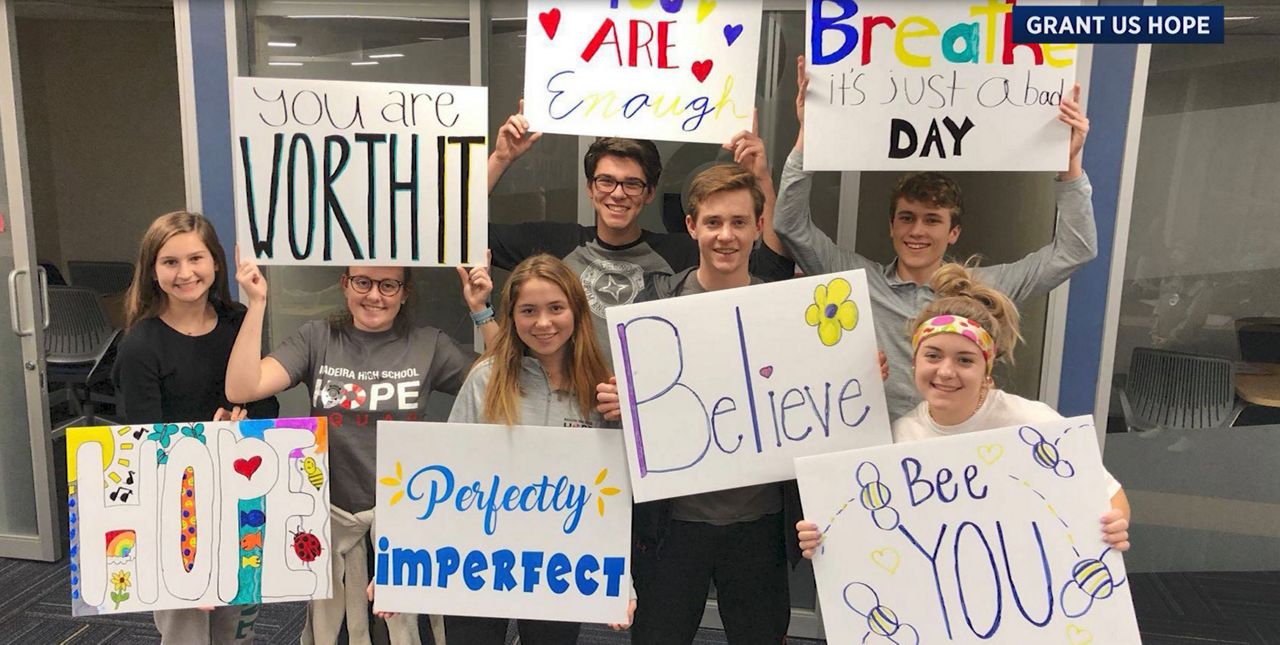CINCINNATI — Teen suicide is a problem one mother who lost her son and groups of teens are battling and they say what they're doing is working.
Taylor Jackey is still in high school.
She's a junior at Mason High school and she said she already knows how to save a life.
“It was my best friend at the time and I remember her calling me and saying, I asked her, 'do you wanna commit suicide?' and she said 'yes I do," said Taylor.
When she heard the warning signs she said she talked her friend out of suicide.
“I said like ‘hey, you had the courage to talk to me and reach out to me, and so that’s a big step,” said Taylor.
It’s part of the reason she’s in the "Hope Squad," a group helping teens find a way through mental health battles.
“We make a safe space where you can talk about what you’re going through because it can be really hard,” said Taylor.
The group started at her school because of 15-year-old Grant Egbers, a sophomore at Saint Xavier High School.
“Grant was outgoing, he was fun, he was charismatic,” said his mother Diane Egbers.
Diane Egbers said six years ago before anyone ever saw the signs, he committed suicide.
“He had debilitating migraines, and we were so focused with the team of doctors at Children’s (Hospital) on the migraines that we just didn’t see him becoming depressed and losing hope,” said Egbers.
Her son’s death became a part of a troubling trend.
Suicide is the second leading cause of death among youth in the state, according to the Ohio Department of Health.
But Egbers wants to change that.
She started a charity in her son’s name “Grant Us Hope” and so far they’ve helped to get peer "Hope Squads" as mental health resources for teens in 200 Cincinnati area schools.
She said her next step is to help educate parents.
“When your child’s in crisis and struggling, it’s very difficult as parents to know how to proceed, how to get help and if the help you’re getting is really helping,” said Egbers.
She plans to release a new book, a guide for parents.
In the meantime, Taylor said the extra support is working.
She said the amount of teens needing help from them is down and added she likes to think she is part of the solution.
“It feels good to make them feel like they’re not alone,” said Taylor.
If you or someone you know is struggling with thoughts of suicide, call the suicide hotline at 1-800-273-8255 OR TEXT "HOME" TO 741-741
You can also find more information on ways to get mental health support for youth through this link.



